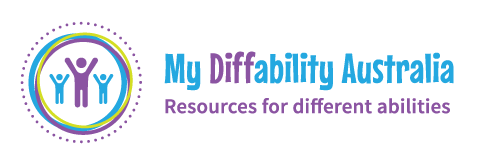ORDER BEFORE 19 DECEMBER TO GUARANTEE CHRISTMAS DELIVERIES
Emotional Regulation tools help children, neurodivergent learners, educators, therapists, and caregivers develop emotional awareness, resilience and self‑management. At My Diffability, our Emotional Regulation collection includes books, emotion cards, flashcards, games, flip books, communication aids and sensory‑tools designed to support feelings identification, expression, and coping strategies.
Whether you’re looking for emotion flashcards, feelings cards, or games for regulating emotions and resolving conflict, our resources are high quality, neuro‑affirming, inclusive, and designed for value. Use these tools at home, in classrooms, or in therapeutic settings to help foster emotional intelligence, calmness, empathy, and stronger communication.
Build Emotional Vocabulary – Knowing the words for feelings (happy, sad, frustrated, proud etc) is the foundation for recognising and managing emotions
Support Self‑Regulation – When children, teens and adults can identify what they feel, and know healthy ways to respond, challenging moments become learning opportunities instead of overwhelming ones
Neuro‑affirming & Inclusive Design – Our tools cater to diverse learners, including those with autism, ADHD, sensory differences, etc., emphasising respect, safety, and empowerment
Practical & Engaging Tools – Flashcards, games and flip books that are visually clear, tactile where needed, durable, and designed for everyday use
* Start with basic emotions (happy, sad, angry, scared) and gradually introduce more complex ones (frustrated, embarrassed, excited)
* Use flashcards during check‑in times (morning, transitions, before bed) to help children express how they feel
* Pair emotion cards with discussions: “What makes you feel this way?”, “What might help when you feel angry / sad?”
* Use games or matching activities to make learning fun and interactive
* Keep tools visible (in a calm‑down corner, on a lanyard, in a classroom display) so regulation strategies are always accessible
* Explore our full range of Emotion Cards, Flashcards, Flip Books and Games above. Empower yourself and those you support to name, understand, express, and regulate emotions with confidence.
Our resources are designed to be flexible and developmentally appropriate for a wide age range. Most products are suitable for children aged 3 and up, and can be adapted for older children, teens, and even adults depending on the context. They're widely used by parents, educators, therapists, and support workers in a variety of settings.
Start small! Begin with basic emotions such as happy, sad, angry, and scared. Once these are well understood, gradually introduce more complex feelings like frustrated, excited, embarrassed, or proud. Many of our tools, such as emotion cards and flip books, are designed to help scaffold this learning at your own pace.
Emotion cards are a versatile tool! Use them during check-ins, calm-down routines, or transitions to help children, teens and adults identify and express how they’re feeling. You can ask open-ended questions like, “What made you feel that way?” or “What could help you feel better?” You can also use them in games, role plays, or classroom discussions to build emotional vocabulary and empathy.
Oh absolutely! In fact this is what we are known for. All of our emotional regulation tools are carefully selected with neurodivergent learners in mind. Many of our resources are used by occupational therapists, speech pathologists, and special educators. We prioritise neuro-affirming, inclusive, and supportive products that meet a range of sensory, cognitive, and emotional needs.
1000+ 5 Star Reviews
70,000+ Orders Placed
Here To Help
Registered NDIS Provider
